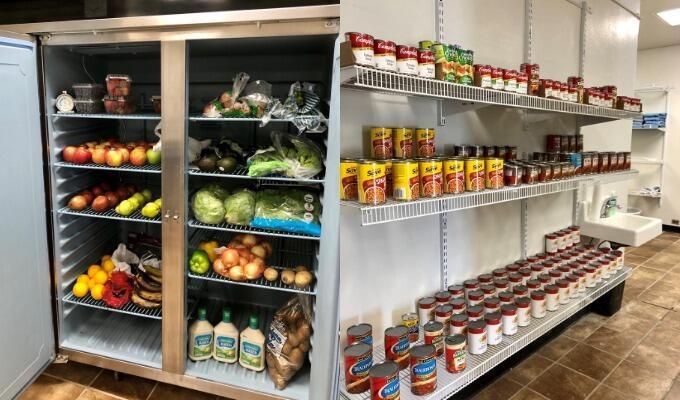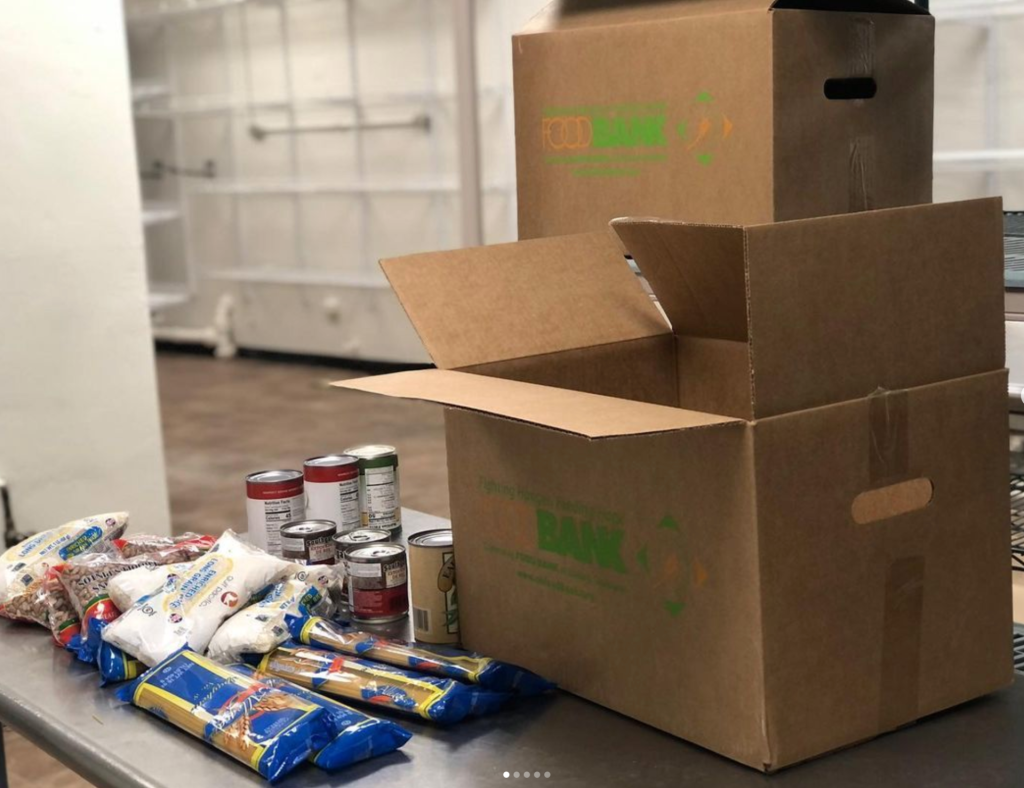
Ending hunger, achieving food security, improving nutrition, and promoting sustainable agriculture worldwide by the year 2030.
This goal seeks to create a world where no one goes to bed hungry, where food is nutritious and accessible, and where agricultural practices are environmentally sustainable. It recognizes that addressing hunger and malnutrition is not only a moral imperative but also a crucial step toward achieving a more equitable and sustainable global society.
The University of Tulsa aims to end hunger, achieve food security, improve nutrition, and promote sustainable agriculture. While the specific actions taken by TU may vary over time, here are some ways in which TU contributes to this goal:
- Research and Education: TU conducts research on topics related to food system, sustainability, and nutrition. This research can inform policy and practice, providing valuable insights into addressing hunger and promoting sustainable agriculture.
- Academic Programs: Offer academic programs and courses related to agriculture, food security, and nutrition. These programs can equip students with knowledge and skills to contribute to SDG 2 both locally and globally.
- Community Engagement: Collaborate with local communities, especially those in need, to address food insecurity. TU can establish partnerships with food banks, community gardens, and organizations working to alleviate hunger.
- Sustainability Initiatives: Implement sustainable practices on campus, including sustainable agriculture and food sourcing. Supporting local and sustainable food systems can reduce the university’s ecological footprint and set an example for students.


- Sustainability Initiatives: Implement sustainable practices on campus, including food pantry, sustainable agriculture and food sourcing. Supporting local and sustainable food systems can reduce the university’s ecological footprint and set an example for students.
- Awareness and Advocacy: Raise awareness about issues related to hunger and sustainable agriculture through seminars, workshops, and public awareness campaigns. Encourage students, faculty, and staff to engage in advocacy efforts to support SDG 2.
- Partnerships: Collaborate with organizations, businesses, and governmental agencies involved in food security and agriculture. By working together, TU can leverage resources and expertise to make a more significant impact.
- Awareness and Advocacy: Raise awareness about issues related to hunger and sustainable agriculture through seminars, workshops, and public awareness campaigns. Encourage students, faculty, and staff to engage in advocacy efforts to support SDG 2.
- Food Recovery Programs: Establish programs to recover excess food from dining halls and events on campus, redistributing it to those in need in the local community.
- Student and Faculty Initiatives: Encourage student and faculty-led initiatives that address food insecurity and promote sustainable agriculture. This could involve student-run food drives, community gardens, or research projects focused on SDG 2.
It’s important to note that TU plays a vital role in advancing SDG 2 through education, research, community engagement, and sustainability initiatives. The specific actions taken vary depending on the university’s resources, expertise, and commitment to addressing hunger and promoting sustainable agriculture in alignment with the SDGs.

SDG 2 Targets
Implement programs or activities to address hunger and food insecurity on campus
Prioritize the purchase of products from local, sustainable sources
Collaborate with local community food banks, Sodexo, etc
Research
5+
Total Scholars
28
Total Publications
News
- University of Tulsa junior Tulsi Patel has been named one of 40 female college students selected to receive a CREW Network Foundation Grant for the 2024-25 academic year. This award […]
- Cherokee Nation and The University of Tulsa announce the launch of the second cohort of the TU Cherokee Women’s AcceleratHER Fellowship, empowered by the ayana Foundation. Designed to empower and […]
- Senior Brittany Banh, who serves as president of the Student Alliance for Violence Education, is the 2024 recipient of The University of Tulsa’s Marcy Lawless Service Award.
- The James Beard Foundation has announced its 2024 Media Award nominees, and The University of Tulsa’s Switchyard magazine has received two nominations in the categories of Food Coverage in a […]
- As migrants from the Middle East and war-torn parts of Africa continue seeking refuge in Europe, many of those who journey across the Mediterranean Sea or through Turkey land in […]
- On Friday, The University of Tulsa College of Law hosted a workshop at the TU Legal Clinic to assist 60 Afghan evacuees in extending their valid immigration status. These individuals […]
- As a University of Tulsa Presidential Professor teaching audio journalism and co-teaching multimedia journalism, Mary Anne Andrei said her goal is to inspire students to tell stories that make a […]
- University of Tulsa faculty member Mohamed K. Fakhr has been awarded a two-year, $300,000 grant from the U.S. Department of Agriculture to study foodborne pathogens in meat and poultry products. […]
- TU’s Asian American Student Association is a vibrant student-led organization that aims to spread knowledge about the beauty of Asian life and culture.
- Catherine Browne is a doctoral candidate in the nurse anesthesia program at The University of Tulsa. She expects to graduate in May 2024 – but not before completing her project […]